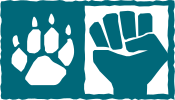

| PRESENTATION |
| Sunday, 08.09.2019 11:30-12:20 Room A |
| Humane education and alternatives to animal experiments |
| Nick Jukes |
The design of the curriculum for medical, veterinary medical and biological science education and training involves choices about the tools employed to meet teaching objectives. Ensuring that the tools are the most appropriate requires clarity on teaching objectives and an awareness of developments in technology, educational practice and ethics. Harmful animal use, specifically animal experimentation, the dissection of purpose-killed animals, and other instrumental animal use, continues to be employed in some practical classes. However, innovative and humane alternative methods are now widely available and are increasingly being implemented worldwide to achieve replacement and to enhance the acquisition of knowledge, skills and attitudes. This transition reflects a growing commitment to best practice, an appreciation of the advantages of alternatives, and the demands of students, trainees and campaigners. Alternatives include non-animal alternative tools such as multimedia software and virtual reality (VR), training models, mannekins and simulators, examples of which will be demonstrated. They also include alternative approaches such as student self-experimentation, the use of ethically sourced animal cadavers, and clinical learning opportunities with patients. In this presentation, the range of alternatives employed within education and training for anatomy, physiology, pharmacology, clinical skills and surgery will be detailed. Teaching objectives and the lessons of the hidden curriculum will be explored, and published studies will provide further evidence of the pedagogical, ethical and economic advantages of alternatives. Some of the resources available to support curricular change will be described. The positive impact of humane education on students, teachers, society, the professions and the animals will be traced, and case studies will show that such tools and approaches are often no longer considered "alternative", but the norm. |